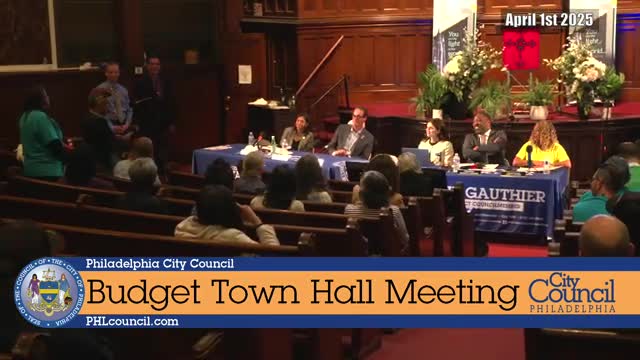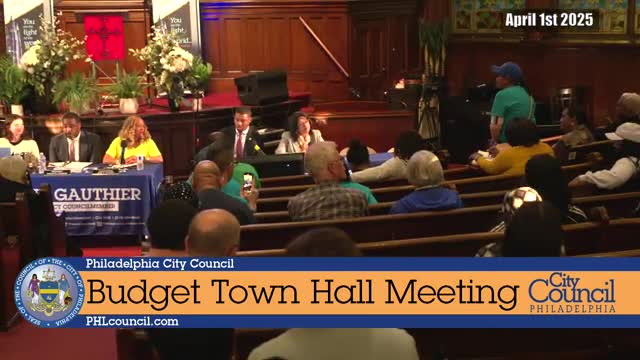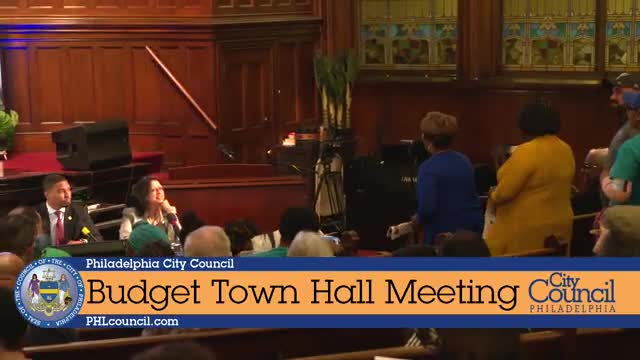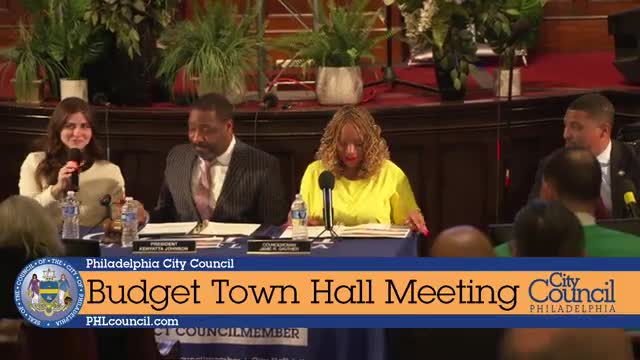Article not found
This article is no longer available. But don't worry—we've gathered other articles that discuss the same topic.

Town hall attendees urge council to save 0‑fare SEPTA program as enrollment faces cut in June

Neighborhoods press council for $10M proactive rental inspection, home‑repair funds and action on vacant properties

Residents press council to restore Office of Homeless Services funding; Atlee House cited as street‑level need

